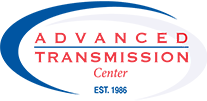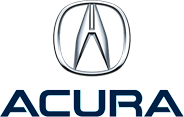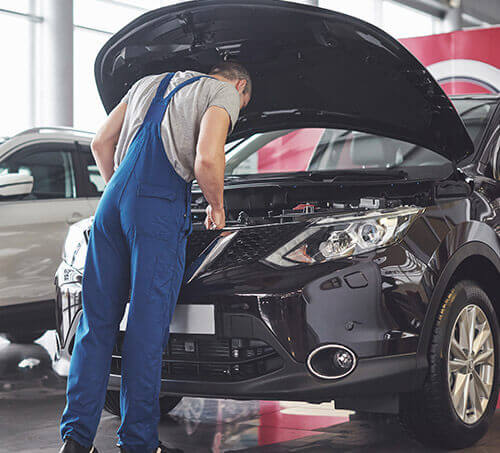
When you hear an out-of-the-ordinary sound while starting or driving your car, it can catch you off guard, make your heart race, and have you thinking about how much is in your checking account. Most of the time you can get a pretty good idea of what is happening by diagnosing auto noises. What do they mean? Here are some of the most common noises and what they could be.
Of course, keep in mind that some noises might be common to more than one problem, and no guide is foolproof. The only way to know for sure what you are facing is by taking your vehicle to a specialist like Advanced Transmission Center if it appears to be transmission or drivetrain-related, or to your mechanic if it’s something we wouldn’t fix.
Noise When Backing Up
Several different noises can occur when backing up—grinding, whining, howling, clunking. Sometimes a grinding noise is misdiagnosed as a transmission problem when it is really associated with low brake pads and a seized brake caliper. A whining noise indicates a transmission problem—most likely a clogged fluid line—while howling could be from a bad differential and clunking is probably a worn driveshaft u-joint or worn engine or transmission mounts. Wheel bearings can also cause an odd whine.
Grinding While in Drive
A grinding noise from the transmission while driving might be one of the worst sounds you can experience, mainly because it could mean a serious problem with the planetary gear system within the transmission. If it fails, significant damage and cost can follow as this type of failure adversely impacts other components within the transmission as well.
Gurgling Noise While Driving
An odd gurgling noise while driving is an indication of low transmission fluid and the noise is caused by air in the transmission line. This noise happens when the gears in the transmission slip. If this occurs, the fluid level may be low enough to cause damage to internal parts of the transmission because not only does it supply fluid for the hydraulics in the transmission, but it also lubricates and protects internal components.
High-Pitched Squeal Under the Hood
This often happens when starting the engine and the likely culprit is your serpentine belt going bad or slipping. This belt drives all essential engine parts. If this fails entirely, you will be stuck on the side of the road.
Wheel Squealing That Stops When You Brake
This is the warning system that tells you your brake pads need replacing. Don’t ignore it. Sometimes it doesn’t take long to go from needing to be done, to no brake pad material left at all. If that occurs, you may have to get new rotors as well instead of just resurfacing the existing ones. In Colorado, this is extraordinarily dangerous. Can you image going down steep grade during a drive in the mountains only to have your brakes go out? This is terrible for your vehicle but more importantly extremely dangerous.
Noise When Turning the Steering Wheel
This can sound like a whine, or growling, and means you are low on power steering fluid. If it gets too low, you will find it is hard to turn the wheel, much like older cars that had no power steering, and you will damage the power steering pump. Not only will you need to fill it, but also figure out where the leak is.
Clicking When Making a Turn
There are a few possibilities when you hear this noise. It could be the CV joint, a bad axle, or a loose tie rod end. None of these are good problems to have, and you can’t wait to fix them, or you could be risking an accident.
Banging When Going Over a Bump
A banging or clunking noise when going over a bump could indicate bad sway bar links or bushings. If these are bad, other major components can get damaged. In some cases, an engine or transmission mount may be damaged which is an easy fixed if addressed immediately. Your mechanic can tell you exactly what the source is.
Additional Considerations
What role does vehicle age play in the types of noises it might make, and how should this influence diagnostic approaches?
Vehicle age can influence the types of noises due to wear and tear on parts. Older vehicles may exhibit noises from worn components, suggesting a thorough inspection focusing on common wear areas is essential.
How can technology, such as diagnostic apps or devices, assist in identifying car noises and their sources more accurately?
Modern diagnostic technology, including apps and handheld devices, can help pinpoint noise sources through sound analysis and comparison, offering a more precise initial diagnosis before professional inspection.
What preventive measures can car owners take to minimize the occurrence of these noises?
Regular maintenance, including fluid checks, tire inspections, and brake system servicing, can prevent many common noises by ensuring vehicle components remain in good condition and properly lubricated.
Come in For an Inspection
At Advanced Transmission Center, we want to see you out on the road, free of any troubling noises or problems. Come in for a quick and free TrueTest Inspection to diagnose any issues or noises you are experiencing. Don’t forget, regular maintenance of your transmission is just as important as an oil change and will help prevent damage from occurring.
Westminster – Northwest Metro Denver: (303) 421-4140
Lakewood – Southwest Metro Denver: (303) 922-4102
Advanced Transmission Center is a Colorado-owned and operated auto repair shop with locations in Denver / Lakewood and Westminster. ATC specializes in driveline issues such as automatic transmission repair, four wheel drive repair, clutch replacement, differentials, manual transmissions and CVT. As Colorado's first AAA approved shop our goal is to provide accurate, timely service with exceptional customer satisfaction. All of our technicians are certified in the latest makes and models and we are one of the few transmission repair shops with a nationwide warranty.



 Free Customer Towing Service
Free Customer Towing Service  Free TrueTest™ Inspection
Free TrueTest™ Inspection  Fast Transmission Services
Fast Transmission Services  Comprehensive Warranty in Denver
Comprehensive Warranty in Denver 

























